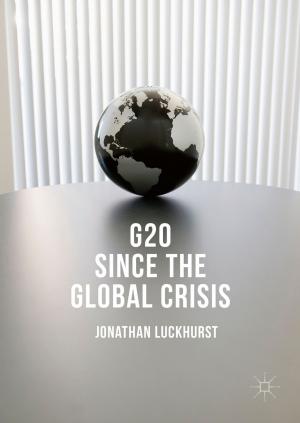Time, Communication and Global Capitalism
Nonfiction, Social & Cultural Studies, Political Science, Politics, History & Theory, Business & Finance| Author: | Wayne Hope | ISBN: | 9781137443472 |
| Publisher: | Palgrave Macmillan | Publication: | January 27, 2016 |
| Imprint: | Palgrave Macmillan | Language: | English |
| Author: | Wayne Hope |
| ISBN: | 9781137443472 |
| Publisher: | Palgrave Macmillan |
| Publication: | January 27, 2016 |
| Imprint: | Palgrave Macmillan |
| Language: | English |
In this book Wayne Hope analyzes the double relation between time and global capitalism. In order to do this, he cross-relates four epistemes of time - epochality, time reckoning, temporality and coevalness – with four materializations of time – hegemony, conflict, crisis and rupture. Using this framework allows Hope to argue that global capitalism is epochally distinctive, riven by time conflicts, prone to recurring crises, and vulnerable to collective opposition. These critical insights are not easily thematized in a mediated world of real-time reflexivity, detemporalized presentism, and denials of coevalness associated with structural exclusions of the poor. However, the worldwide repercussions of the 2008 financial collapse and the resulting confluence of occupation movements, riots, protests, strike activity, and anti-austerity activism raises the prospect of a rupture within and beyond global capitalism.
In this book Wayne Hope analyzes the double relation between time and global capitalism. In order to do this, he cross-relates four epistemes of time - epochality, time reckoning, temporality and coevalness – with four materializations of time – hegemony, conflict, crisis and rupture. Using this framework allows Hope to argue that global capitalism is epochally distinctive, riven by time conflicts, prone to recurring crises, and vulnerable to collective opposition. These critical insights are not easily thematized in a mediated world of real-time reflexivity, detemporalized presentism, and denials of coevalness associated with structural exclusions of the poor. However, the worldwide repercussions of the 2008 financial collapse and the resulting confluence of occupation movements, riots, protests, strike activity, and anti-austerity activism raises the prospect of a rupture within and beyond global capitalism.















